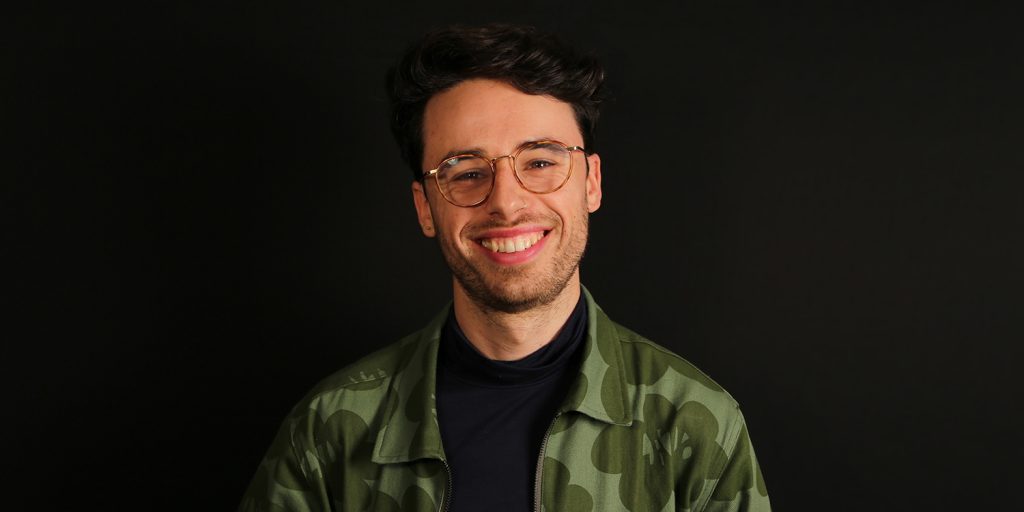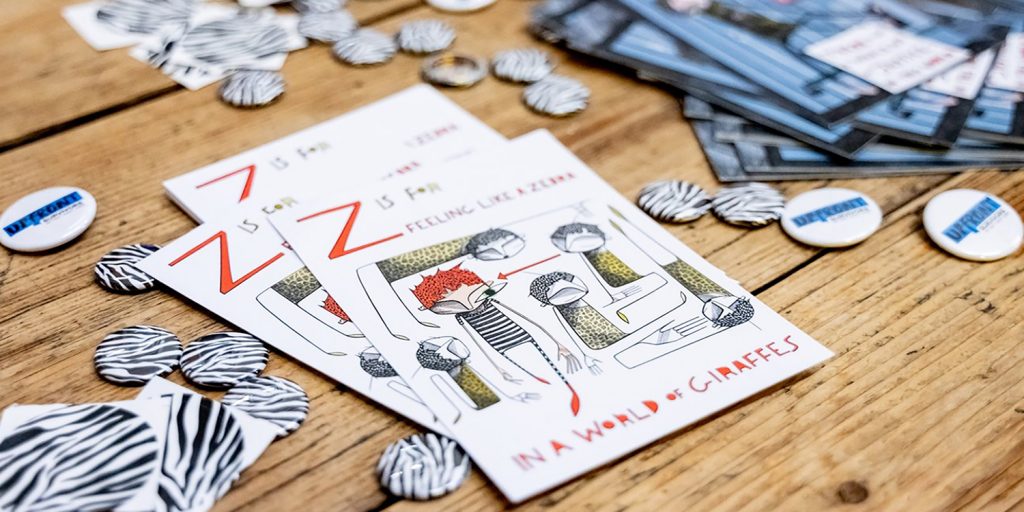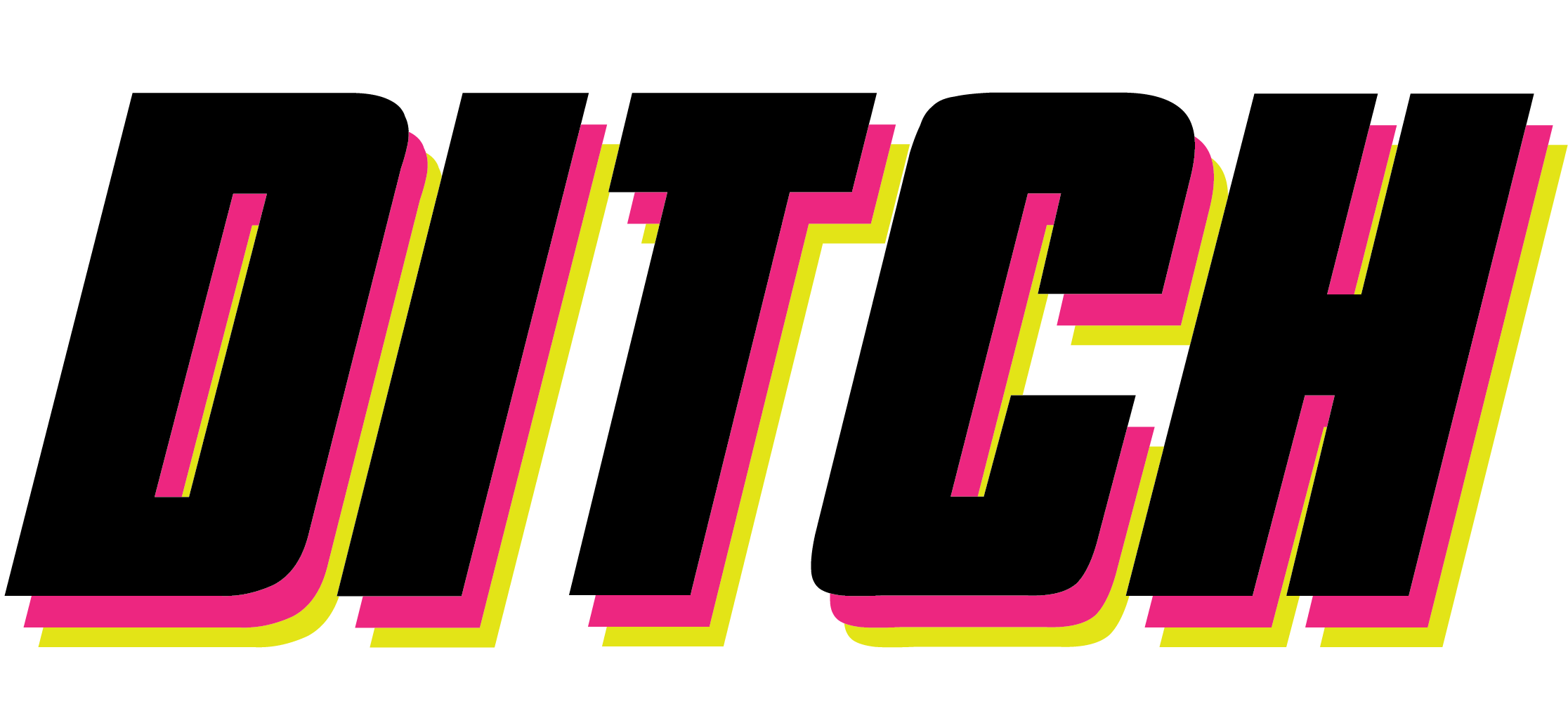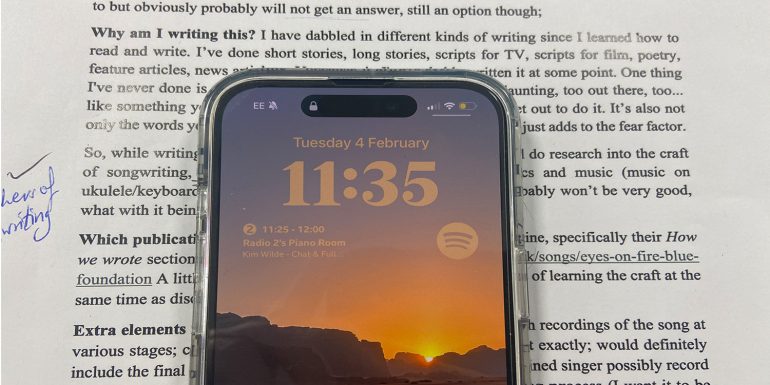Tom ditched social media two years ago and found space to create. Less comparison, more creativity. Could stepping back from social media be the secret?
Is excessive social media scrolling killing our creativity? DITCH reporters set out to find someone who decided to log off social media permanently to answer this question.
Enter Tom Bevan, a 30-year-old theatre producer. Tom told us he used to be good at social media. He kept up with trends and scrolled Twitter like the rest of us. In January 2023, something changed – he realised how negatively social media impacted him and decided to ditch it. He still uses WhatsApp to talk to friends, “so maybe it’s cheating a little bit”, he jokes. He’s trying to switch to Signal because he doesn’t like Z*cke*b*rg… don’t we all?

Tom: The big reason behind deciding to step away [from social media] was my own mental health. Scrolling is such an easy habit to pick up. A lot of my negative thought spirals would come from comparing myself to people or feeling that I said something not quite right on Twitter. Looking back, it’s funny now that you get into these patterns online.
That element of choice is empowering
Magda: Any drastic changes in your mental health or day-to-day?
Tom: Massive changes. I’ve got more energy. I spend less time on my phone, which frees up time for other stuff. I started writing creatively; I read a lot. I used to just, you know, spend that time scrolling. I feel less anxious, because I’m not comparing myself to others as much.
I’m also not getting marketed as much stuff. You forget how much of social media is targeted ads. I still get them on websites, but it’s different to having them on Instagram, where it’s so immediate. That can really impact your mental health because you feel a bit under attack from the constant capitalism. It’s nice to be away from that.
This is a good moment to mention that our reporter is quite addicted to social media and very aware of that addiction – the next question wasn’t on her list but came from a place of bewilderment.
Magda: Do you not get FOMO?
Tom: I think the upsides of social media are the connection and the community – you do miss out on that. But I’ve noticed the more people in my life know I’m off social media, the more they’ll send me a message if they want me to come to something or if they’ve posted big news on Instagram. I wouldn’t say I get FOMO for the actual platforms themselves.

Magda: Have you always written creatively or did you start after ditching social media?
Tom: I used to do it when I was a teenager. I don’t know if it’s that simple, but it does feel like since I’ve come off social media, I’ve suddenly started writing again. I think this is partly because I used to follow a lot of poets on Twitter, and it’s easy to see their beautiful work and compare yourself. You put yourself down a bit, and some people find that inspiring, don’t they? But I found it a bit debilitating.
Magda: Would you say there’s a connection between being bored and coming up with ideas?
Yeah, I think I need to be de-stimulated or under-stimulated. If I’m overly stimulated I’ll just concentrate on the things around me. I like having an empty head, a blank canvas.
Another question from someone who clearly can’t imagine life without TikTok, brace yourselves for impact:
Magda: Would you say that, if you’re not looking at what’s already out there, you’re not as worried about accidentally copying someone?
Tom: I think so. But I also still do a lot of reading, go to galleries, and watch films. I like having a lot of creative stimuli. It’s about choosing what I see instead of an algorithm telling me what to consume. That element of choice is empowering. It makes me think there is a world where I could be a writer because people come at things from different angles and not everyone’s on social media.

Magda: What is the relationship between social media and creativity?
Tom: I think that, for some people, social media is a creative space to share work and ideas. For me, it became a place of comparison. I’m not trying to preach to leave all social media. My partner has a healthy relationship with it and finds it to be a very creative space. I can only speak for myself.
Magda: Do you think targeted algorithms hurt creativity?
Tom: It’s different people, different story, but it can become a bit of an echo chamber. It’s good to see stuff you don’t like. Part of understanding your own creativity is going: “What didn’t I like about that?” The issue with social media is you get opinions second-hand. It’s very easy to become, I had this tendency as well, quite judgmental. I think the algorithm is useful for building community.
“It’s okay to be awkward. Our generation has such an aversion to that, but it’s part of being alive
Magda is still stuck on the fact that Tom said he doesn’t scroll social media feeds when waiting for the bus, so she has to ask:
Magda: Your bus is five minutes away. You don’t scroll. I assume you won’t pick up a book in such a short amount of time? What do you do?
Tom: I take pen and paper with me everywhere, and I’ll often take notes. But at a bus stop, I sit and watch the world go by like it’s 2006. I have to admit, it can be annoying. I’m not pretending it’s all good. And I’m not judging people for going on their phones; I can also relate to that. Say you’re at a party, and there’s an awkward moment or a lull in the conversation – I used to be terrible for going on my phone. But I think it’s okay to be awkward. Our generation has such an aversion to that, but it’s part of being alive. I’ve been trying to lean into that more.
Magda: I hate standing there and looking around, but maybe I should try it.
And the crowd agreed.
Tom’s recommendations:
Music: Close the App by Elijah; NTS Radio to discover new music
TV show: Severance
Book: The Trees by Percival Everett
Film: Big Night
We wanted to test whether under stimulation was the key to creativity, so we got DITCH writer Eva to challenge herself to spend 30 minutes doing absolutely nothing for three days. Watch to see the results of the challenge!

